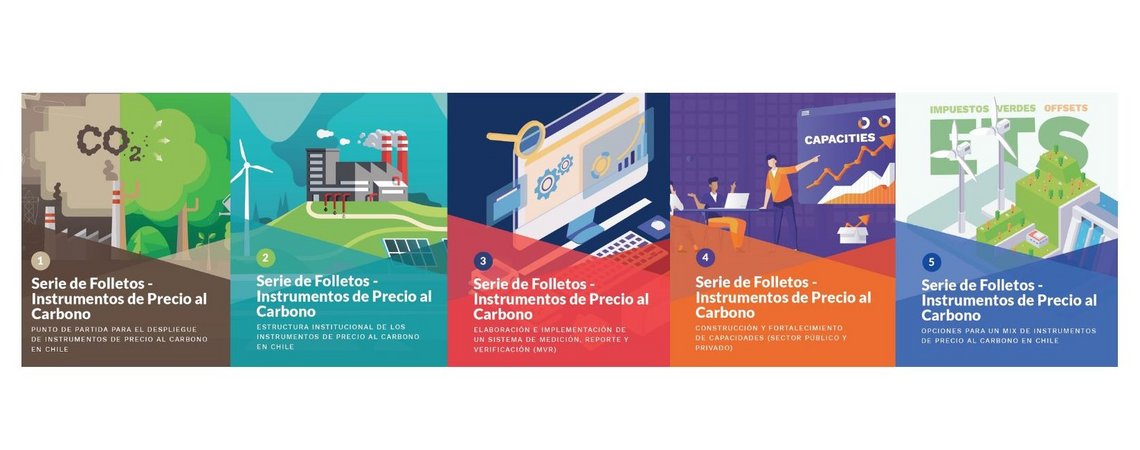March 2021 - In 2019, Chile set the ambitious mid-century goal of becoming carbon neutral. Against this backdrop, the Chilean government formulated a new nationally-determined contribution (NDC) containing a roadmap of concrete measures to achieve net-zero carbon emissions by 2050. Some of those measures, including the use of market mechanisms, are now being discussed in Chile’s National Congress as part of a new climate change bill. A recently-published informational booklet series on carbon pricing in Chile summarises the country’s experience with carbon pricing and shows how market mechanisms can be used to aid a fast transition to carbon neutrality. Made up of five separate booklets, the informational series was produced as part of a Global Carbon Market project being conducted by Deutsche Gesellschaft für Internationale Zusammenarbeit (GIZ) on behalf of the Federal Environment Ministry (BMU).
The Carbon Pricing Instrument Booklet Series sets out the key aspects in the design, development and implementation of carbon pricing in Chile. For example, the introduction of a green tax in 2017 was a major step in Chilean climate change policy. As one of the first countries in Latin America to introduce carbon pricing, Chile set an important example for the region as a whole. While the main purpose of the green tax is to reduce greenhouse gas emissions and local air pollution, in the meantime it also provides for an offset system in which companies can trade certificates. Against this backdrop, the first part of the booklet series describes the starting point in deploying carbon pricing mechanisms in Chile. Building on this, the second part of the series looks at the technical and institutional challenges faced in implementing Chile’s first green tax, focusing for the most part on developing and introducing a measurement, reporting and verification (MRV) system. Part three then sets out concrete proposals for the design and implementation of a binding MRV platform.
The entry into force of the first Chilean green tax in 2017 was coupled with a wide range of regulatory, institutional and technical challenges. As a first step, capacities had to be built, both in the public sector and by the stakeholders affected by the new tax. How those challenges were met and how approaches to carbon pricing can be harmonised with other climate change instruments is covered in the fourth and fifth parts of the booklet series.
An English-language version of the Carbon Pricing Instrument Booklet Series is available for download here. Each of the booklets contains a link to the respective Spanish-language version.
Series of Booklets Part 1: Starting Point for the Deployment of Carbon Pricing Mechanisms in Chile
Series of Booklets Part 2: Institutional Structure of Carbon Pricing Instruments in Chile
Series of Booklets Part 4: Capacity Building and Strengthening (public and private sector)
Series of Booklets Part 5: Options for a mix of Carbon Pricing Mechanisms in Chile

